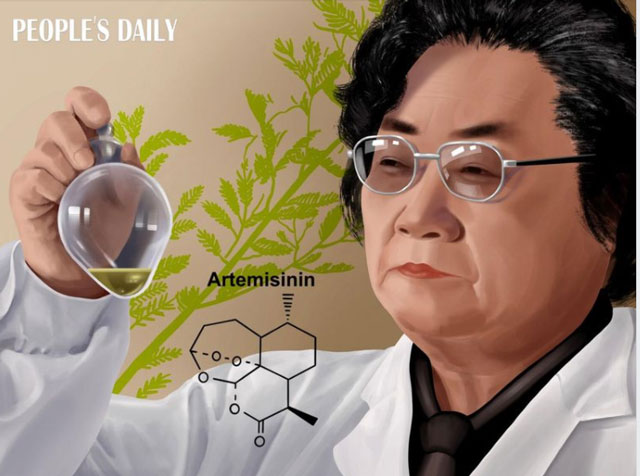Vocabulary
Article
In 2015, scientist Tu Youyou broke through the glass ceiling to become the first Chinese woman to win the Nobel Prize in Medicine for her pioneering work with Traditional Chinese Medicine (TCM).
After studying TCM in the 1970s, Tu discovered that sweet wormwood, a traditional remedy for malarial fevers, could be used in contemporary medicine by extracting artemisinin. This extract is now a key ingredient in anti-malaria medications. It is also being tested to see if it can help fight Covid-19 although the World Health Organization only recommends the use of traditional medicine as a complementary treatment to scientifically proven drugs.
Tu Youyou’s research has led to major advances in modern medicine. Still, the foundations for her research were laid over 500 years ago by pioneering Ming-dynasty pharmacologist Li Shizhen (1518-1593), author of the “Compendium of Materia Medica”.
A Masterpiece of Chinese Medicine
Spanning 52 volumes, the “Compendium of Materia Medica” has been hailed by UNESCO as “the most complete and comprehensive medical book ever written in the history of traditional Chinese medicine.” While it was written in the middle of the 16th century, the compendium is still revered today for systematically cataloging TCM and for the many new treatments discovered by its author.
The work details the use of 1,892 different medicinal substances, offers 11,096 prescriptions, and provides 1,109 hand-drawn medical diagrams covering plants, animals, minerals, agriculture, phenology, and geography. Among the treatments pioneered by Li is a prescription for Sanqi or Panax notoginseng in the treatment of serious injuries to stop excessive bleeding. However, many more innovative discoveries are still used today. The work remains a benchmark in the history of TCM and required reading for anyone interested in learning more about China’s storied heritage.
Exploring the Origins of TCM
In the centuries since Li first published his “Compendium of Materia Medica”, both the book and TCM continue to fascinate the world much like it did Nobel prize-winner Tu Youyou.
Beyond the knowledge it imparts to readers, it is also a testament to the author’s hard work and determination, who spent nearly 30 years traveling across China to compile its contents.
Through the documentary, audiences can learn how Li began documenting the natural world and eventually became one of China’s most famous doctors on “China in the Classics” a series that explores some of China’s most fascinating cultural accomplishments.
Source: https://sponsorcontent.cnn.com/int/china-classics/materia-medica/?utm_medium=ppc&utm_source=tab&utm_campaign=cgtn21_A1_apac&tblci=GiC8aXu6LeqiF9f0FcvnVPlRuTsTwmRgiH9vH95igaEYySCQ7j8ovfOrh7nRh501#tblciGiC8aXu6LeqiF9f0FcvnVPlRuTsTwmRgiH9vH95igaEYySCQ7j8ovfOrh7nRh501
